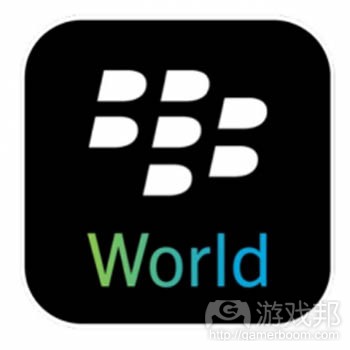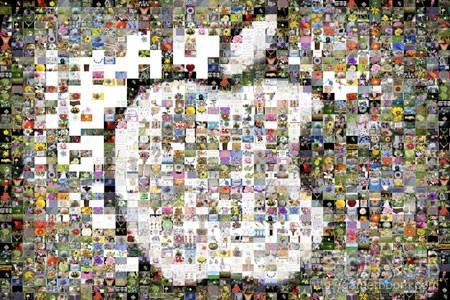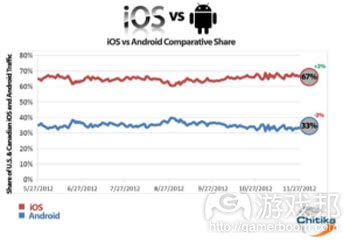每日观察:关注Zynga新模拟游戏《Party Place》(12.4)
1)据games.com报道,Zynga日前向移动平台推出了新款模拟游戏《Party Place》,但目前仅面向加拿大iOS App Store开放服务。
该游戏支持玩家创建自己的虚拟角色,自定义角色的头发、服装、眼睛颜色等元素。游戏中含有大量基于关卡解琐的内容,允许玩家花钱购买虚拟货币并购买相关道具。
2)据mobile-ent报道,RIM日前宣布将旗下应用商店BlackBerry App World更名为BlackBerry World,而该应用商店网页版本也将在1月30日BB10发布之前更名。
黑莓PlayBook平板电脑用户将看到更新后的应用商店名称,而视频和音乐内容仍将仅限于通过该设备的Music Store和Video Store应用发售。
这并非今年第一个应用商店更名的消息,在8月份微软就已宣布对Windows Phone Marketplace更名,Andrid Market则在3月份就已更名为Google Play。
3)全球战略及营销咨询公司Simon-Kucher & Partners最近报告调查了2400款App Store应用的售价情况,并发现在苹果App Store下载量前100名,以及前100名畅销应用中,预付费是其中最普遍的销售模式,但有将近三分之一应用选择的是免费增值模式。
其调查的对象共有4种类型——游戏应用、新闻应用、实用型应用、社交网络应用。其中游戏是最成功采用免费增值模式的产品类型;采用IAP模式的最大收益比预付费模式最大收益多10倍以上。
4)据techcrunch报道,已被Zynga收购的OMGPOP工作室原首席财务官Wilson Kriegel日前也宣布离职,日前加入Paltalk并担任该公司总裁及首席运营官一职。
Paltalk是一家位于纽约的视频聊天服务公司,虽然知名度不高,但一直颇具盈利性,自8年前通过软银融资600万美元之后就没有再接受外部资金,目前有1.5亿注册用户。
Kriegel将负责监管该公司用户及收益增长战略,与Siai Chen、Roger Dickey等其他Zynga收购工作室的高管一样,Kriegel也在离职后加入了非游戏公司,彻底淡出了游戏领域。
5)移动广告平台Chitika最新报告指出,苹果iOS用户上网频率似乎高于Adnroid用户。
Chitika比较了来自iOS及Android硬件的广告印象后发现,iOS在11月份的网络浏览量中占比67%,比5月份时增长了2%。Adnroid则占比33%,这两者在8月份时的比例最为接近,当时三星Galaxy S III销售情况可观,而苹果iPhone 5则尚未发售。
尽管平板电脑市场情况不断发生变化,但苹果iPad在平板电脑网络流量中所占比例仍然持续领先。(本文为游戏邦/gamerboom.com编译,拒绝任何不保留版权的转载,如需转载请联系:游戏邦)
1)Party Place is Zynga’s answer to the Sims on iOS
by Brandy Shaul
While the Ville may have fallen short of Zynga’s longterm expectations due to legal issues with EA, the massive social game developer has released a similar title on mobile called Party Place. Gamezebo has discovered that the game is only available to download in Canada as of this writing, but we’re here with a quick preview of what you can expect when the game launches here in the US.
Party Place allows players to create an avatar of their own design with limited customization options in terms of hair, clothing, eye color and so on. From there, the game mixes home design with character interaction as players throw parties and cause “drama” between friends. Using items in one’s home will allow energy to be spent or earned, and drama can be either good or bad, depending on the situation.
The game has plenty of level-locked content, encouraging continued play and the game is monetized via the inclusion of a cash and coin system, where cash can be spent to purchase coin bundles in bulk, for instance. We’ll have a complete look at Party Place in the near future, but if you have access to a Canadian iTunes account, you can now download the game for free and try it for yourself.(source:games)
2)BlackBerry App World becomes BlackBerry World
by Daniel Gumble
Rebrand announced ahead of BB10 launch.
With the launch of BlackBerry 10 edging ever closer, the company has rebranded its BlackBerry App World to, simply, BlackBerry World.
The BlackBerry App World web store will become the BlackBerry World web store prior to the BB10 launch event on January 30, 2013, while the BlackBerry World name change will be rolled out to all storefronts as of mid-January 2013.
BlackBerry PlayBook tablet customers will see the updated store name in a future build, while video and music content will still be only available via the separate Music Store and Video Store applications on the BlackBerry PlayBook tablet.
Customers on BlackBerry OS smartphones (OS 5, 6, 7 and 7.1) will also see the updated name and continue to benefit from new titles as they are developed for the BlackBerry OS platform.
However the video and music content will not be available.
Developers from across the globe have been creating new apps and games for BlackBerry 10, while other teams at RIM have been meeting with content partners, music labels, networks, and studios to provide a comprehensive catalogue of music and video in one storefront with one login on the user’s BlackBerry 10 smartphone.
This is not the first rebranding story to make the headlines this year. In August it was revealed that Microsoft was in the process of rebranding the Windows Phone Marketplace, while Android Market was rebranded as Google Play in March.(source:mobile-ent)
3)Upfront payment the most common price model for App Store apps
by Daniel Gumble
New study also looks at the rise of freemium models.
The international App Store Study 2012 has shown that 40 per cent of App Store apps employ an upfront payment model, making it the most common payment model in the store.
Conducted by the global strategy and marketing consultancy Simon-Kucher & Partners in the US, UK and Germany, the App Store Study examined the prices of 2,400 apps by price and category. By looking at the top 100 downloads and top 100 purchases in the Apple AppStore, the study showed that upfront payment is the most common price model for apps, while freemium models are on the increase with almost one-third of all apps utilising a freemium model.
However, when looking at the four analysed app categories – games, news, productivity (‘functional daily helpers’) and social network apps – some clear differences begin to emerge. The games category has proved top be particularly successful at using the freemium model to transform customers into payers.
When looking at the price levels and the differences between upfront and in-app prices, costs vary significantly. Maximum in-app prices can be more than ten times higher than maximum upfront prices.
Annette Ehrhardt, Senior Director at Simon-Kucher, said: “Nothing is impossible. Correctly communicated, there is a market for any price. It’s no wonder, considering the vast variety of products you can now find as apps.”
In a bid to attract and keep paying customers, app developers have created two different freemium price models on top of the traditional free and paid apps. While some are offering apps for an upfront payment and then offer in-app purchases (‘freemium I’), others are offering free-to-download apps with the option of in-app purchases later on (‘freemium II’).
Meanwhile, there are almost twice as many apps without upfront payment than apps with upfront payment in the entire freemium marke, going some way to emphasise the fact that there are other opportunities to monetise apps than the classic paywall. “‘Download first, pay later’ is the name of the game here. If app providers want to enter the ranks of top downloads, this is the key. Monetisation would then follow,” commented Ehrhardt.
Across the countries included in the study, the majority of app prices for upfront and in-app offers range from one to five USD, GBP or EUR. Yet app prices vary strongly, with the study indicating that providers should refrain from focussing too much on assumed price limits and very low price thresholds. Higher priced apps are also well represented in the analysed top 100 listings. “If we consider how different the value is that each and every app delivers, the vast price variation we observe is good news,” added Ehrhardt. “Uniform pricing for products of varying value is never the best approach.(source:mobile-ent)
4)OMGPOP’s Chief Revenue Officer Wilson Kriegel Becomes President, COO of Video Chat Startup Paltalk
Kim-Mai Cutler
Another one of Zynga’s recent departures has landed.
Wilson Kriegel, who was OMGPOP’s chief revenue officer until the Draw Something maker was acquired for $210 million in cash and retention, is taking a president and chief operating officer role at New York-based Paltalk. He left Zynga, which bought OMGPOP earlier this year following a slew of other executives who have left the ailing social gaming company.
Paltalk, a video chat service, has had a very low profile for years, but the company has remained profitable and hasn’t taken funding since a $6 million round from SoftBank eight years ago. It has 150 million registered users (though no disclosed numbers on monthly actives). Paltalk is a video chat community that offers free group video calls and chats. Kriegel says that more than 20 million streams are viewed a day through Paltalk and the average log-in time is 61 minutes per session.
“This company is generating tens and tens of millions of dollars in revenue every year,” Kriegel said. “It’s highly profitable, and its business model is in subscriptions, virtual currency and advertisement. My gaming background is exactly in that.”
At Paltalk, Kriegel will oversee usability and user and revenue growth with the compnay’s premium and in-app currency services. The company makes money when users send virtual gifts to each other or when they sign up for subscriptions that get rid of pop-up or banner ads and allow more simultaneous video windows.
Like many other founders or executives Zynga has acquired over the years, Kriegel is leaving the gaming industry entirely.
“I wasn’t seeing anything that wasn’t differentiated,” Kriegel said. “Beyond companies like Kixeye and Supercell, there aren’t really a lot of market makers. There’s not a lot of differentiation on the content side, and we’re in a down cycle which started — at least in perception — because of Zynga.”
Other acquired Zynga founders like Siqi Chen and Roger Dickey are working on non-gaming concepts, while others like Nabeel Hyatt and Robin Chan have crossed over into the venture side.
While Kriegel wasn’t a co-founder at OMGPOP, he was with the startup through the extensively difficult time before the company found a hit on the iOS platform in Draw Something. He said he didn’t want to take time off.
“I’ve never spent more than a couple weeks not working and I’m a dad now. That changes perspective on what matters,” he said. “I didn’t feel that not working would be a valuable use of my time.”(source:techcrunch)
5)Apple’s iOS Still Dominates Mobile Web Browsing, Little Has Changed Over Six Months Of New Devices
Darrell Etherington
Users of Apple’s iOS mobile operating system tend to be much heavier mobile web browsers than Android users, according to mobile ad network Chitika. That tendency hasn’t changed very much at all during the past six months despite the introduction of a wide variety of new Android hardware. While Apple has updated its iPad, and introduced the iPad mini and the iPhone 5, there have been countless new Android phones, the Kindle Fire HD, and new Nexus devices, but iOS still has about twice as much of web traffic consumption as Android-based browsers.
Chitika found that comparing just traffic impressions coming from iOS and Android hardware, iOS came away with a 67 percent browser share in November, which has fluctuated only slightly but is actually up 2 percent from May. Android has shed that 2 percent, going to 33 percent at the most recent measurement date. The two were closest right around the end of August, which is when Samsung’s Galaxy S III was on the market and selling well, but ahead of Apple’ iPhone 5 release.
The biggest advantage for iOS, however, according to Chitika and other sources, is that Apple’s iPad continues to be a dominant force in terms of web traffic share originating from tablets. Smartphone web traffic remains neck-and-neck, and Apple has yet to really cede any ground in terms of traffic coming from tablets despite the changing market share picture of tablets according to reported volume of devices shipped.
Chitika also suggests that this data indicates mobile users stay loyal to the OS they’re already on when changing devices: Little change over a six-month period must cover upgrade points for a fair number of users, but people seem to be sticking with the OS they know, regardless of what changes are made in terms of hardware released. But the data has repercussions for how advertisers target their mobile ads, since it suggests that a greater percentage of the mobile web-based audience is probably coming from iOS devices, which has a slightly different demographic makeup than an Android-based viewership.(source:techcrunch)












































 闽公网安备35020302001549号
闽公网安备35020302001549号